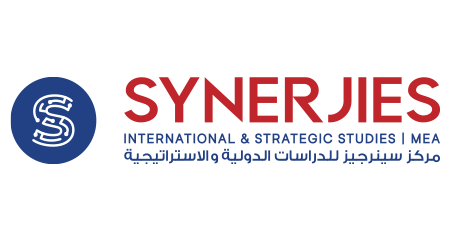A MEA Leader
Egypt’s influence and relevance in the venture capital and startup scene has been growing in significance in the MEA region. One of the main structural reasons behind this is the fact that it has one of the biggest populations in the region, so it is a fertile ground for startups to grow and scale-up. In Q32021, according to the Egyptian Startup Ecosystem Report 2021 by Disrupt Africa in collaboration with ITIDA, total funding raised by Egyptian startups has seen a 158% year-on-year increase reaching a total of USD 403.5M as of September 2021, coming in second in Africa. The latest high-profile round ‘MNT-Halan’, a fintech and logistics startup, close a funding at a whooping USD 120M. In fact, this is believed to be the largest funding round ever in Egypt. Generally, interest in Egyptian startups has been particularly focused on tech-enabled startups. Most startups now have to have an element of Tech-Innovation to be able to grab investors’ attention. Noteworthy, the number of startups did not increase dramatically between 2020 and 2021, but the increased size of rounds has reflected this growth in total funding raised.
The Flourishing Ecosystem
Weathering the Covid-19 pandemic, surprisingly startups have been not only resilient, but some have been even able to expand. It can be observed that that expansion of tech-startups during the pandemic can be attributed to the increased adaption of technology by consumers and producers. In short, the pandemic has been an impetus for the digitization of many services. Nevertheless, startup growth for the past 5 years can be attributed to a number of factors of which are government initiatives and support, government-backed funds, university incubators, private sector support, positive social perception and high growth potential.
Government Initiatives and Support:
The Egyptian government has been adamant about increasing SME inclusion into the wider economy. Most prominent of the initiatives undertaken to promote startups include:
- In 2020, the Ministry of Communications and Information Technology (MCIT) has launched “Our Digital Opportunity” initiative to engage with SMEs in the digital transformation process, which is in line with Egypt’s ICT 2030 strategy focusing on digital transformation.
- Also, in 2020, a new law was issued to provide tax, customs, non-tax, and monetary incentives for startups, SMEs, and all entities supporting startups and SMEs.
- The Central Bank of Egypt (CBE) launched a fintech fund worth USD 64M to support innovative fintech and fintech-enabling startups.
- In collaboration with public universities, MCIT has launched Creative Innovation Hubs across Egypt to support startups.
University Incubators:
Globally, university incubators are deemed to be engines of innovation and creativity. A few Egyptian universities have taken the chance to provide support, mentorship, training, networking, and even funding to startups led by their own students or even entrepreneurs elsewhere through incubation programs. University incubation programs have so far been able to provide support to hundreds of startups. Most prominent of these incubators include:
- American University in Cairo’s AUC Venture Lab, launched in 2013, AUC Venture Lab is the first university incubator in Egypt. It supported hundreds of startups through its program, which is completely equity-free.
- Cairo University’s FEPS Business Incubator, which runs a 16-week incubation program which has so far provided more than 50 startups with mentoring, coaching, and seed funding.
- Assiut University’s Hemma Incubator, launched in 2014 with backing from the European Union’s Research, Development, and Innovation initiative it aims to support startups in the health, food, water, and manufacturing sectors.
Private Sector Support:
Also, in the past 4 years, we have seen a few private sector companies supporting startups through accelerator and incubation programs. Most of these programs tend to be focused on specific sectors, which pertain to the company’s sector. Such incubators include:
- EdVentures, launched in 2017 by Nahdet Misr Publishing House, it is an education sector focused incubator. It has so far provided technical and financial support to tens of education-based startups.
- MINT incubator, launched in 2018 by EGBank in partnership with Cairo Angels. MINT Incubator is a sector agnostic incubator that provides early-stage startups with a three-month training and acceleration program.
- AB Accelerator, launched in 2021 by Arab Bank, it is a fintech accelerator. It is part of Arab Bank’s efforts to support technology and innovation in the financial sector.
Though lacking in local corporate initiatives, many multinational companies, like Google and Microsoft, hold hackathons and competitions and provide support to startups in the MENA region and Africa. Such initiatives include:
- In cooperation with IBM, in 2019 the Technology Innovation and Entrepreneurship Center (TIEC) has launched a program for startups using AI, Blockchain, Cloud Computing, and Data Science technologies to provide them with technical and consulting services and assistance.
- Google for Startups Accelerator MENA region is a three-months digital accelerator program for technology startups. It provides funding, digital support, and training for selected startups.
- In collaboration with Visa, in 2021 ITIDA launched a fintech mentorship program which provides technical training to startups and a USD 20K for the best performing startup in the program.
High Growth Potential:
Indeed, successful startups usually influence entrepreneurs and high growth potential coupled with a vibrant business ecosystem can lure in more startups. For example, Vezeeta, a health-tech startup, founded in 2012, it was practically the first of its kind in Egypt. In a span of less than 10 years it was able to expand into 4 countries and reach 4 million patients. Now there are around 53 active health-tech startups in Egypt, that provide services similar to that of Vezeeta or even inspired by Vezeeta.
Positive Social Perception:
More so, according to the Global Entrepreneurship Monitor (GEM) Egyptians have improved how they perceive entrepreneurship. According to GEM, 71.5% of Egyptians perceive entrepreneurship as a good career choice which is higher than the global average in 2020.
Is Venture Capital Funding Key to Successful Startups?
Growing at massive rates with huge valuations, the likes of Swvl, Vezeeta, and MNT-Halan have definitely spiked investor interest in the Egyptian market, investors are starting to bet on who is the next Unicorn. Despite high risks associated with venture funding, investors are overly eager to invest even in early-stage startups with big amounts. According to CBInsights, only 1% of startups evolve into a Unicorn.
Nonetheless, venture capital funding may hinder startups success. In their quest for funding, startups may lose sight of their goals and purpose; seeking funding could be a full-time job, it demands a lot of time and energy as it also may be critical for startups. Founders and key shareholders may end up with a minority ownership of their startup as more venture capitals provide funding. Also, in order to minimize risk investors usually draw a shareholder’s agreement that may burden entrepreneurs to stick to certain terms to the investors benefit. In essence, venture capitals as in all other corporations invest to their benefit not for startups.
Outlook
Egypt has managed to create a flourishing ecosystem for startups, that which serves and supports startups and startup enablers. Many startups have become an essential part of our lives, and a growing number of startups are creating space for a competitive marketplace for various products and services. It is concerning, however, the handful of startups that are growing rapidly and are grabbing a huge market share from other competitors who may have not been lucky enough to close a huge round of funding. Should we start to be concerned about the influence of unicorns on competition in the Egyptian economy? Does it seem feasible to have a huge part of the economy fully dependent on web applications?


